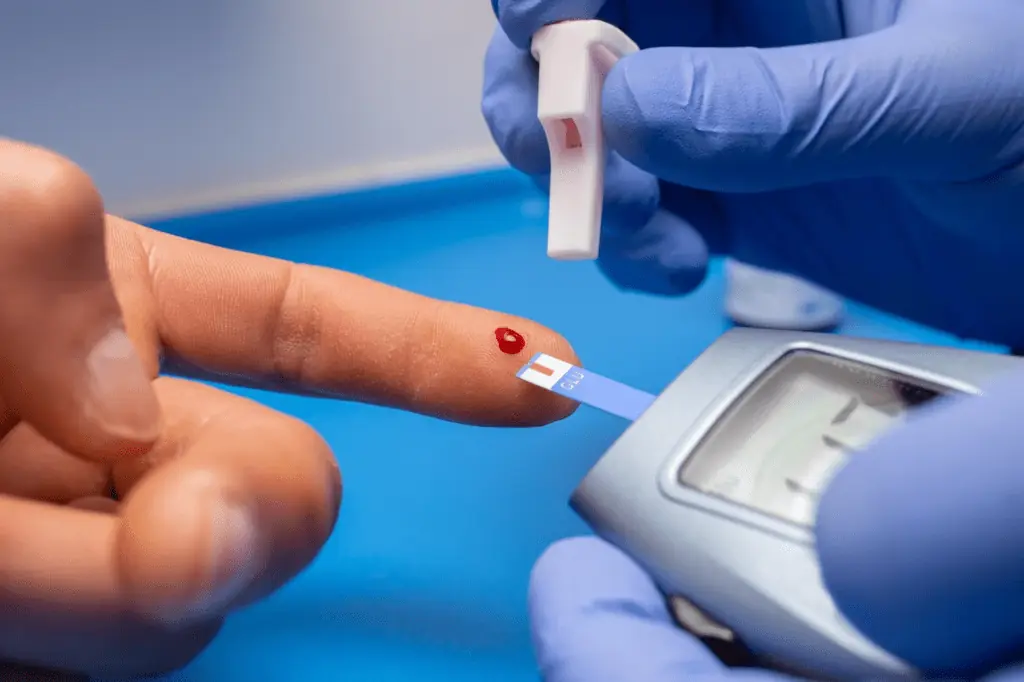
Managing a single health condition can be challenging enough, but what happens when two or more conditions are present? This is known as comorbidity, and it’s a common occurrence among many people. Comorbidity can complicate treatment plans and increase the risk of negative health outcomes. However, it is possible to manage comorbidity effectively with the right strategies and mindset.
In this article, we will explore some tips and techniques to help you navigate the complexities of comorbidity and lead a healthier, happier life.
What is Comorbidity
Comorbidity is a term used to describe the presence of one or more additional health conditions that co-occur with a primary condition. In other words, it refers to a situation where a person has multiple health problems at the same time. For example, a person with diabetes may also have high blood pressure or heart disease.
Managing comorbidity is important because it can significantly impact a person’s overall health and quality of life. When multiple health conditions are present, they can interact with each other, making it more difficult to manage them individually. This can lead to a range of negative outcomes, such as increased healthcare costs, reduced effectiveness of treatments, and poorer health outcomes.
For instance, a person with depression and diabetes may find it challenging to manage their blood sugar levels while struggling with low mood and motivation. Similarly, a person with heart disease and arthritis may find it challenging to exercise regularly, which can further exacerbate their health problems.
How To Manage Comorbidity
So, how can you manage comorbidity like a pro? Here are some tips:
Get A Team Of Superheroes
No, not actual superheroes (although that would be pretty cool). We’re talking about a team of healthcare professionals who can work together to develop a personalized treatment plan that addresses all of your health conditions. It’s like having the Avengers on your side, but instead of fighting Thanos, they’re fighting your health issues.
Moreover, it’s important to keep your team of superheroes in the loop. Let them know how you’re feeling, what symptoms you’re experiencing, and any changes you’ve noticed. Don’t be afraid to ask questions, either. Your team is there to help you, and they can’t read your mind (unless they have real superhero powers).
Regular Monitoring
Keep track of your symptoms and track any changes over time. This will help you and your healthcare team identify any patterns or trends in your health conditions and adjust your treatment plan accordingly. It’s like keeping a close eye on your nemesis so you can anticipate their next move.
One way to make regular monitoring less of a hassle is to use technology. Some apps and devices can help you track your symptoms, monitor your health markers, and even remind you when it’s time to take your medication. It’s like having a personal assistant, only without the attitude.
Don’t forget to get regular check-ups and screenings. This may include regular physical exams, mammograms, colonoscopies, or any other tests recommended for your age and gender. It may not be the most exciting thing in the world, but it’s important for catching any potential problems early on.
Medication Management
Make a list of all your medications, including the dosage and how often you take them. Keep this list with you at all times, and update it whenever there are any changes to your medication regimen. It’s like having a map of the maze. But instead of showing you the way out, it’s showing you which medications to take and when.
Moreover, keep an eye out for interaction. Some medications can interact with each other, so it’s important to be aware of any potential interactions. Make sure to tell your doctor about all the medications you’re taking, including over-the-counter medications and supplements.
If you’re having trouble managing your medications, don’t hesitate to talk to your doctor. They can help you develop a medication regimen that works for you and address any concerns or side effects you may be experiencing.
Therapy
Finding the right therapist is like finding a needle in a haystack. It takes a lot of time and effort, but it’s worth it in the end. Look for a therapist who specializes in treating the specific health conditions you’re dealing with, and make sure you feel comfortable talking to them.
Moreover, consistency is key when it comes to therapy. Make sure to attend all of your sessions, and be consistent with any homework or exercises your therapist gives you. It’s like practicing a musical instrument – the more you practice, the better you get.
If you’re not seeing progress with your current therapist, don’t be afraid to switch it up. Sometimes it takes a few tries to find the right therapist for you. It’s like trying on shoes – you must find the right fit.
Diet
The word that strikes fear into the hearts of pizza lovers and sugar fiends everywhere. But don’t worry. You don’t have to be a nutritionist to manage your comorbidities. You just have to be willing to make some simple changes and stick with them.
Let’s start with the basics. The foundation of any healthy diet is to focus on whole, nutrient-dense foods that will nourish your body and help you manage your conditions. This means saying goodbye to processed junk food and hello to fruits, vegetables, lean protein, whole grains, and healthy fats.
Another important aspect of managing comorbidity through diet is to pay attention to how different foods affect your body. For example, if you have celiac disease and high blood pressure, you might want to avoid foods high in sodium and gluten. This could include things like processed meats, fried foods, and baked goods.

Exercise
Exercise might be the last thing you want to do when you’re already feeling tired and achy from your condition. But trust us. Exercise is like a superhero cape that can help you fight off those comorbidity villains.
Moreover, you don’t have to become a gym rat or a marathon runner to get the benefits of exercise. In fact, just 30 minutes of moderate-intensity activity most days of the week is enough to make a big difference. And the best part is, you can choose whatever type of exercise you enjoy. Whether it’s walking, swimming, dancing, or something else entirely, just find something that gets your heart rate up and stick with it.
Stress Management
One of the most effective ways to manage stress is through relaxation techniques. This could include things like deep breathing exercises, meditation, or even just taking a few minutes to sit quietly and focus on something positive. And if you’re not sure where to start, there are plenty of apps, websites, and books out there that can guide you through the process.
Another important aspect of managing comorbidity through stress management is to focus on self-care. This means taking care of your physical, emotional, and mental health through things like exercise, healthy eating, getting enough sleep and doing things that make you happy. And yes, that means putting down the work email and picking up a hobby or spending time with loved ones.
Finding Support
When it comes to managing comorbidity, finding the right support network is essential. Finding someone to talk to is important. This could be a friend, family member, or colleague who will listen without judgment and offer advice when asked for it. If you feel like talking with someone outside of your immediate circle is necessary, consider seeing a therapist or psychiatrist who specializes in mental health disorders such as anxiety or depression. They may also be able to recommend other resources, like support groups, that could benefit you further down the road as well.
Staying Positive
Staying positive is key to managing comorbidity like a pro. It’s important to remember that laughter is the best medicine. No, seriously, it is. Laughter releases endorphins, which are like happy little elves dancing around in your brain. So, watch a funny movie, read a humorous book, or just tell a few jokes to your friends. Trust us. It’ll make you feel better.
Next, try to find joy in the little things. Maybe it’s the smell of fresh coffee in the morning, the sight of a beautiful sunset, or the sound of a child’s laughter. Whatever it is, take a moment to appreciate it. It’s these small moments that make life worth living.
Another way to stay positive is to set achievable goals. Celebrate your successes along the way, no matter how small they may seem. Did you manage to go for a walk today? That’s awesome! Did you make it to your doctor’s appointment on time? Amazing! Did you resist the temptation to eat that entire bag of chips? You’re a superhero!
Lastly, don’t take yourself too seriously. It’s easy to get bogged down by the challenges of managing comorbidity, but don’t forget to have a little fun along the way. Dance like nobody’s watching, sing like nobody’s listening, and don’t be afraid to make a fool of yourself every once in a while.

Final Note
Managing comorbidity is a challenge that requires patience, dedication, and a willingness to learn. But don’t let that discourage you! With the right tools and strategies, it’s possible to take control of your health and improve your quality of life.
Remember to prioritize your health, communicate with your healthcare team, and don’t be afraid to ask for help when you need it. With these tips, you’ll be able to navigate the complexities of comorbidity with ease (or at least, with a little less stress). So don’t give up hope – with a little effort and a lot of self-care, you can be a game-changer for your health.









